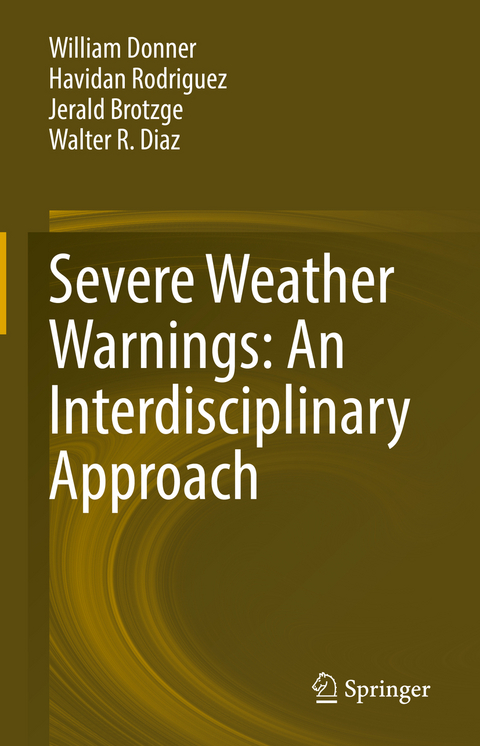
Severe Weather Warnings: An Interdisciplinary Approach
Springer International Publishing (Verlag)
978-3-031-05030-5 (ISBN)
This book offers a comprehensive description and analysis of natural hazard warnings, drawing on perspectives from the social sciences, physical sciences, and interdisciplinary fields such as disaster studies to articulate a distinction between traditional warnings and what might be called interdisciplinary warnings. Traditional warnings approach warning technology, design, and application from a principally scientific and technical perspective. Human factors, while considered, often are of secondary concern. Interdisciplinary warnings, on the other hand, maintain a critical emphasis on the technical merits of warning systems, but also ask, "Will psychological and community factors such as culture and structure shape how the system is used, and, if so, can this information be incorporated into system design preemptively to make it more effective?" Given the absence of systematic work on interdisciplinary warnings, a book-length monograph discussing and synthesizing knowledge from the various fields focused on warnings and warning response is of critical importance to both academics and practitioners. Broadly conceived, the book presents readers with an in-depth overview of warnings, interdisciplinary research, and interdisciplinary collaboration.
The book holds appeal for a very broad audience: scholars; practitioners; and academic, vocational, and technical instructors both in University and non-University settings. It is of interest to academic scholars due to the interdisciplinary treatment of warnings as well as the general presentation of up-to-date scholarship on warning theory. Additionally, scholars interested in interdisciplinary work in general and those focusing on disaster warnings find within the volume a framework for developing collaborative research partnerships with those from other disciplines. As well, the book offers practitioners --emergency managers, mitigation specialists, planners, etc. --a more comprehensive perspective on emergency response in practice, allowing for better development and application of warning policy. Finally, the book appeals to instructors both inside and outside the academy. The authors envision the book useful to professors teaching both graduate and undergraduate-level courses in Sociology of Disaster, Emergency Management Planning, Homeland Security, Disaster Response, Disaster Mitigation, and Business Continuity and Crisis Management. A robust market also exists among professional organizations, perhaps most notably FEMA, which offers countless online and in-person training courses via the National Training Program, Emergency Management Institute (EMI), and other venues.
1. Forward.- 2. Introduction.- 3. Warning Systems: Past, Present, and State of the Art.- 4. Obstacles to Successful Warnings.- 5. Interdisciplinary Warning Research and Practice.- 6. Case Studies.- 7. Future Directions and Challenges.- 8. Conclusion.
| Erscheinungsdatum | 27.08.2022 |
|---|---|
| Zusatzinfo | XVI, 206 p. 18 illus. in color. |
| Verlagsort | Cham |
| Sprache | englisch |
| Maße | 155 x 235 mm |
| Gewicht | 493 g |
| Themenwelt | Naturwissenschaften ► Biologie ► Ökologie / Naturschutz |
| Naturwissenschaften ► Geowissenschaften ► Geologie | |
| Naturwissenschaften ► Geowissenschaften ► Meteorologie / Klimatologie | |
| Sozialwissenschaften ► Soziologie | |
| Schlagworte | Collaborative research • Disaster Policy • emergency management • false alarms • Hazard Warnings • interdisciplinary research • Interdisciplinary Warnings • Warning Policy • Warning systems |
| ISBN-10 | 3-031-05030-4 / 3031050304 |
| ISBN-13 | 978-3-031-05030-5 / 9783031050305 |
| Zustand | Neuware |
| Haben Sie eine Frage zum Produkt? |
aus dem Bereich


